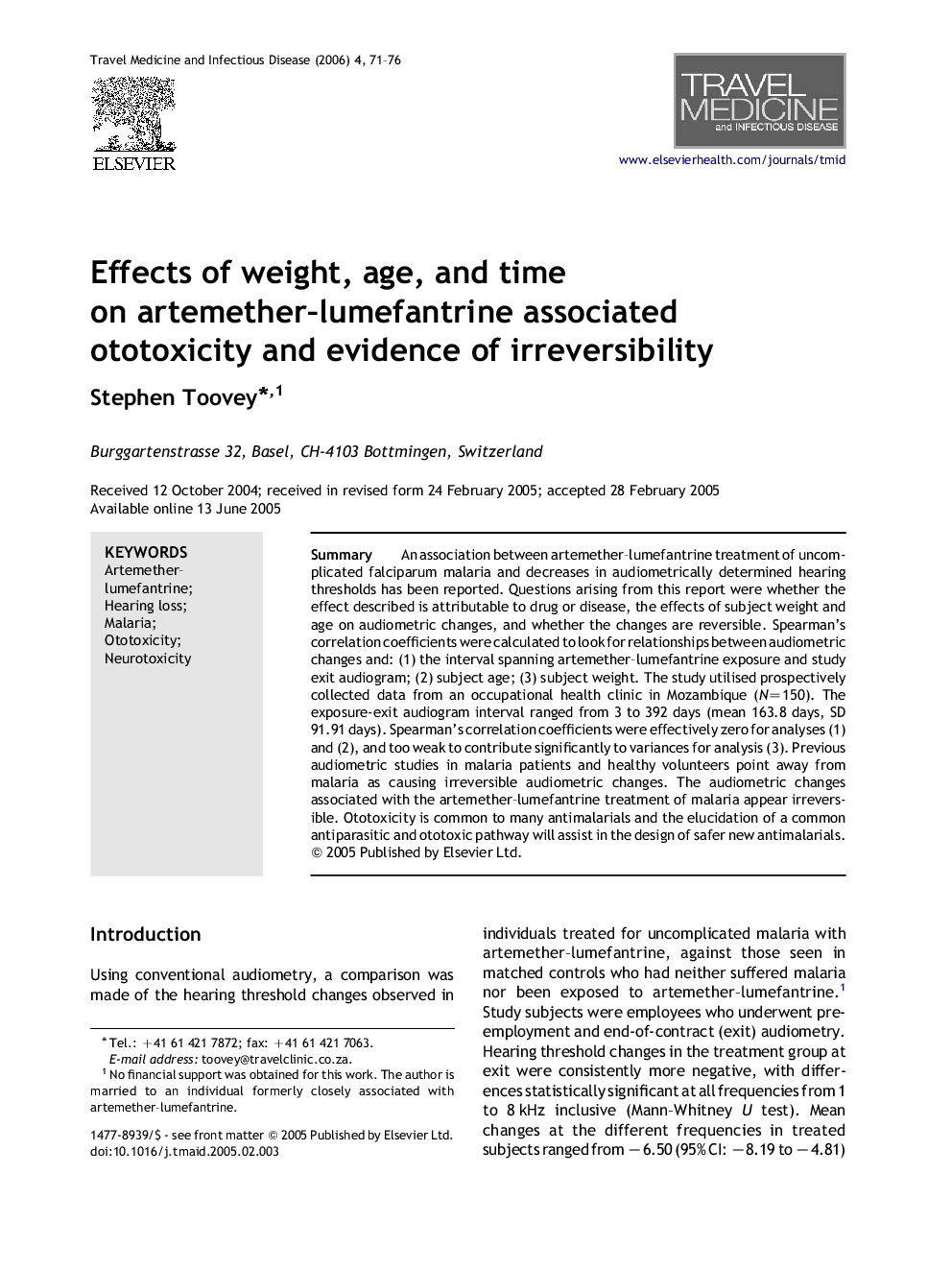| Article ID | Journal | Published Year | Pages | File Type |
|---|---|---|---|---|
| 3393454 | Travel Medicine and Infectious Disease | 2006 | 6 Pages |
SummaryAn association between artemether–lumefantrine treatment of uncomplicated falciparum malaria and decreases in audiometrically determined hearing thresholds has been reported. Questions arising from this report were whether the effect described is attributable to drug or disease, the effects of subject weight and age on audiometric changes, and whether the changes are reversible. Spearman's correlation coefficients were calculated to look for relationships between audiometric changes and: (1) the interval spanning artemether–lumefantrine exposure and study exit audiogram; (2) subject age; (3) subject weight. The study utilised prospectively collected data from an occupational health clinic in Mozambique (N=150). The exposure-exit audiogram interval ranged from 3 to 392 days (mean 163.8 days, SD 91.91 days). Spearman's correlation coefficients were effectively zero for analyses (1) and (2), and too weak to contribute significantly to variances for analysis (3). Previous audiometric studies in malaria patients and healthy volunteers point away from malaria as causing irreversible audiometric changes. The audiometric changes associated with the artemether–lumefantrine treatment of malaria appear irreversible. Ototoxicity is common to many antimalarials and the elucidation of a common antiparasitic and ototoxic pathway will assist in the design of safer new antimalarials.
